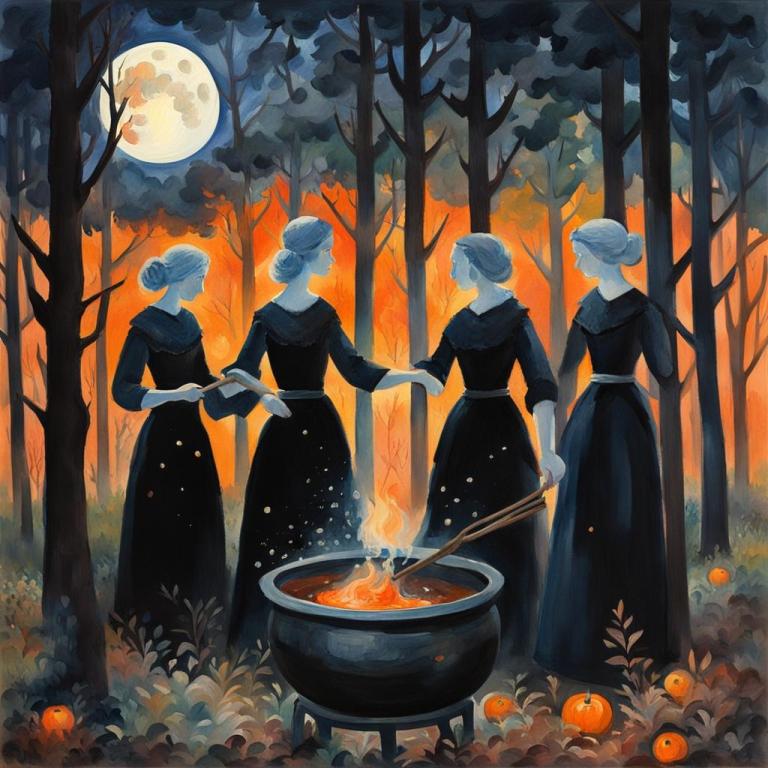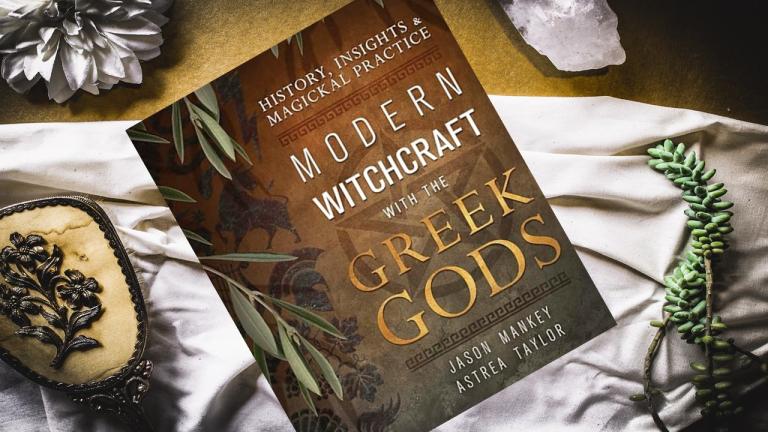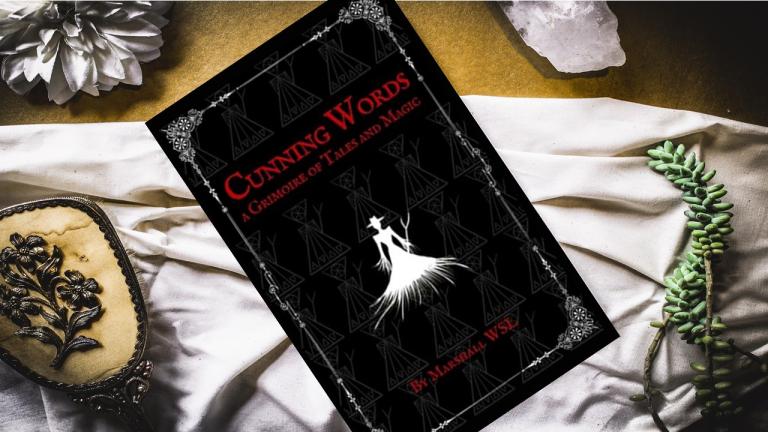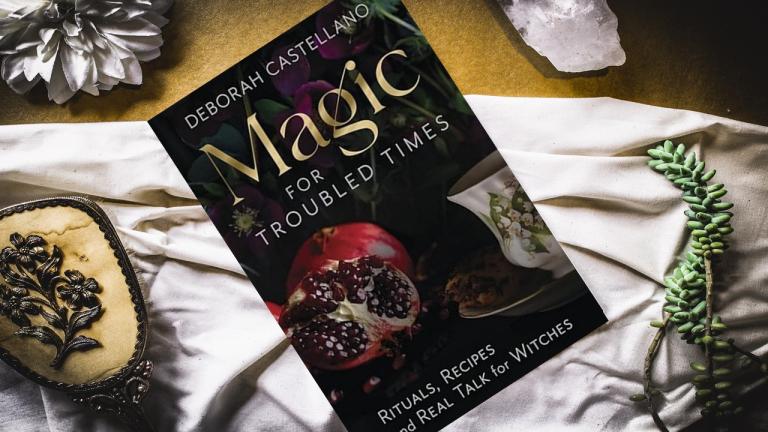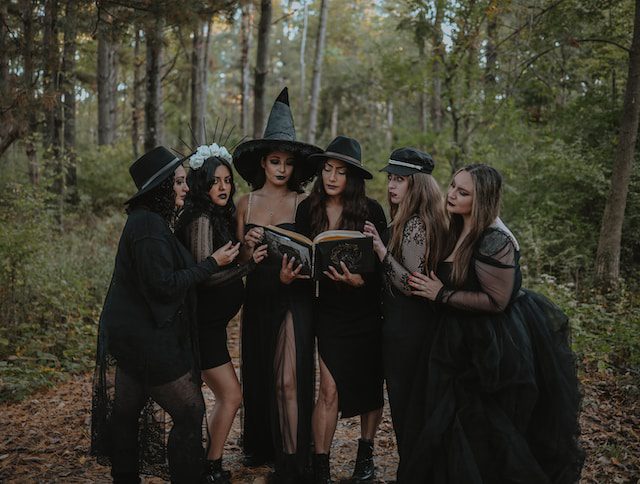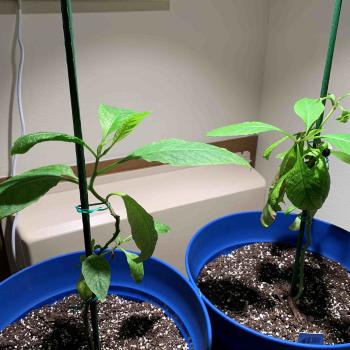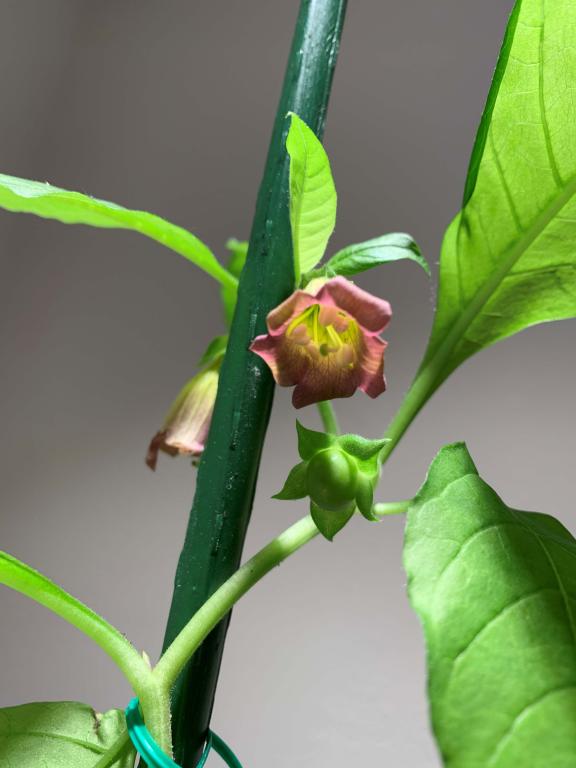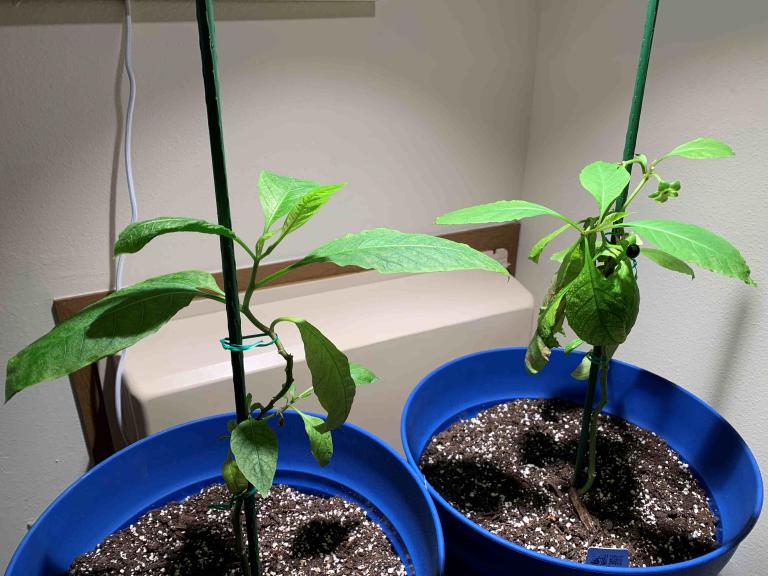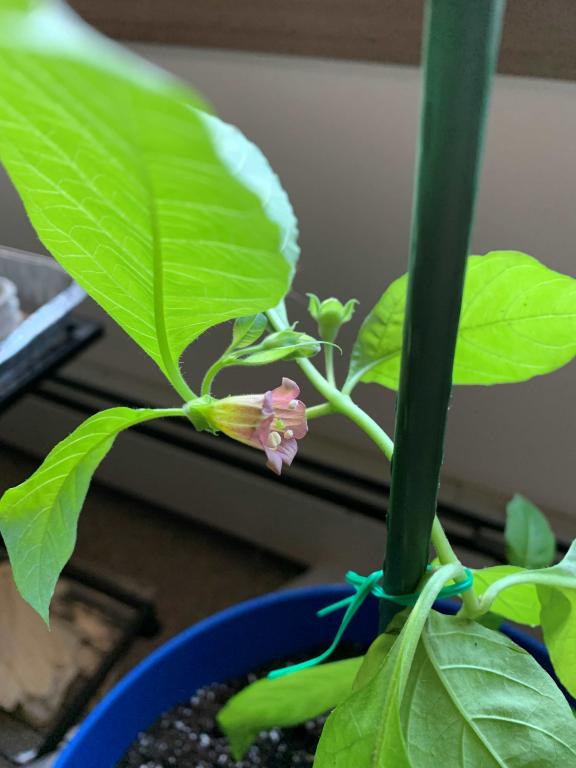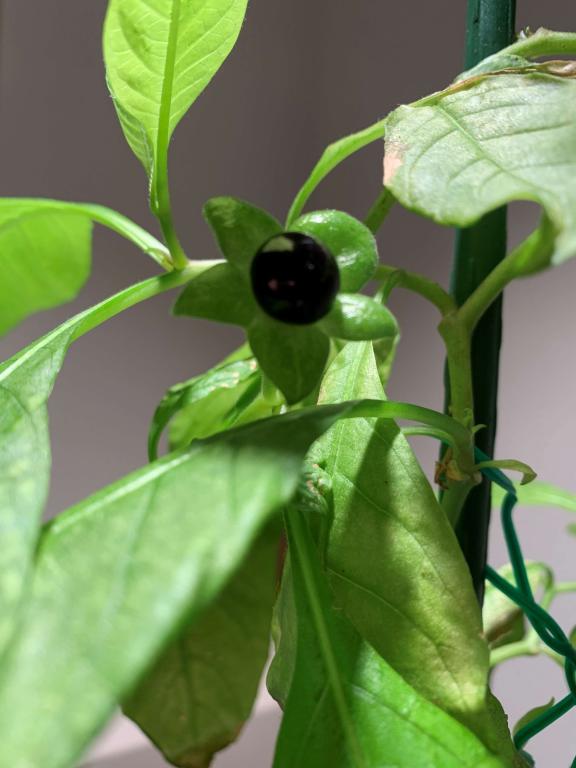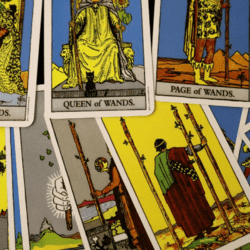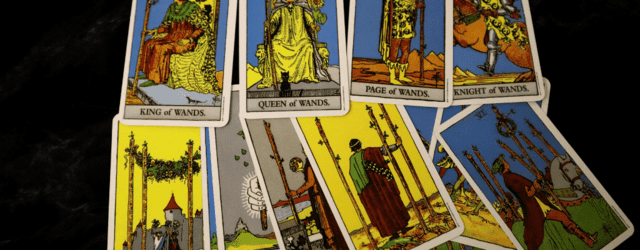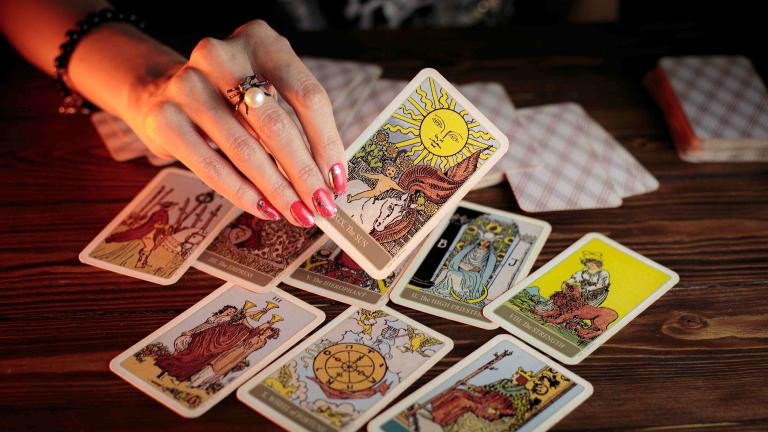. . . coping with uncertainty in turbulent times
We are living in turbulent times. Authoritarianism is gaining a stronghold across the globe. Christian nationalism is an increasing threat to religious freedom in the U.S and many European countries. Times like these do not bode well for witches and pagans.
Far from a “new golden age,” as we are being promised, it feels like we’re backsliding into another dark age. Rumors of witch hunts loom in the shadows. Reports of Christian zealots harassing pagans and protesting pagan events are increasing. Social media posts suggest that pages and groups are being infiltrated by moles who gather information, including personal details, to use against us.
“We—humanity, the earth, the world—are right now in the process of being stripped down to the bone. Everything that does not well serve us is being excised. Our structure is being torn down to the framework so that we may begin the process of rebuilding, of starting over in new and more sustainable ways.”
At The Crossroads of Time
What’s a witch do? What power do we really have? Will sticking pins in a poppet stop the growing injustices being committed every day? Will circles of salt, or crystals, or brick dust keep harm at bay? Will incantations turn attackers away from us? Even if global wide, group spells can shift this dark energy, the results happen at a go-cart’s pace when we need a formula race car’s speed.
How do we care for a world in free fall and ourselves at the same time? The answer is to care for ourselves, our groups and our communities first.
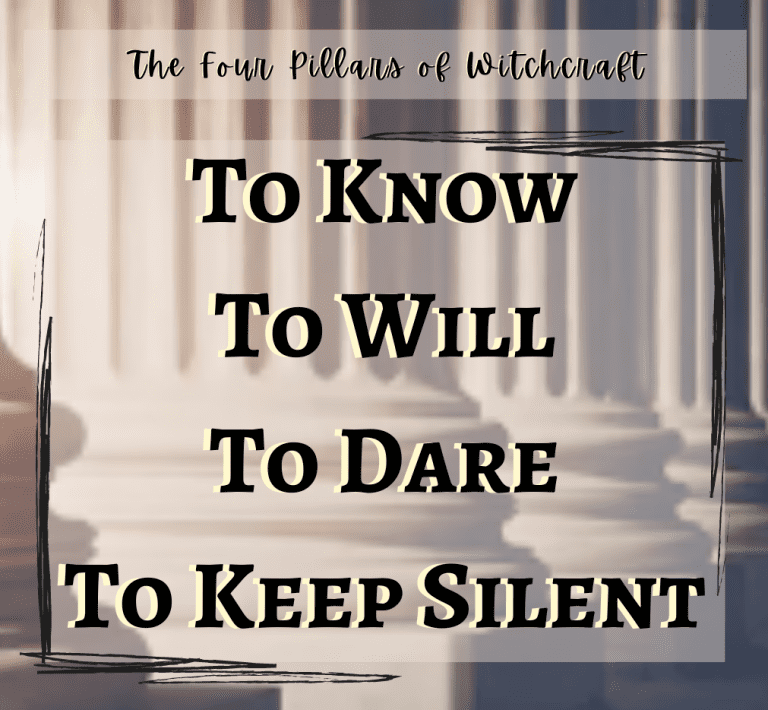
The Four Pillars in Turbulent Times
The Four Pillars of Witchcraft, or the Witches’ Pyramid instruct us to Know, to Will, to Dare and to Keep Silent. Following these tenets during unstable times can help steady the course.
To Know
It’s important to stay current with developments and events, but the headlines these days can be overwhelming. News is a commodity, a numbers game generating billions for the owners and shareholders who have a vested stake in supporting a political climate that favors their wealth.
Regardless, the rapid-fire information dump is a constant assault on our nervous systems. A wise witch practices moderation in news consumption. Curate a few reliable sources that refrain from polarizing their coverage. Even then, take a break from it all once in a while. I have about a half dozen reliable news sources coming into my email daily, but on difficult days I limit myself to a local, evening news broadcast; if anything earth shattering happens, I’ll hear about it there.
It’s also vital for practicing witches to watch the lay of the land with a knowing eye. The shifting social climate is being fueled by fear and bigotry. Othering is modern day persecution, and while we may not be talking witch trials (yet), harassment, doxxing, and unjust legislation are certainly on the table.
If you choose to be an activist, be a smart and safe activist. Analyzing goals and desired outcomes, as well as the foreseeable consequence of any actions, is what we witches do best.
Consider these safety precautions:
- Don’t attend protests or pubic rallies alone—there is relative safety in numbers.
- Know where you are going, assess the location and exit routes whether indoors or out (even in open, public spaces).
- Stay alert and be aware of surroundings and people, especially any suspicious behavior.
- Bring water and a bandanna or scarf you can cover your nose and mouth with in case of chemical irritants (use the water to flush your eyes).
- Keep a list of emergency contacts with you.
- Do not bring children to these events.
Know your limitations. As witches, we are spiritual conduits, and we tend to believe we have more sway in manipulating energy and outcomes than the average muggle. We might take on a greater burden for healing the world than is ours, sort of the way a physician might suffer from God complex. The truth is, we can’t fix everything, and we shouldn’t even try. Some things just have to play out before balance is achieved.
When I start to feel the pressure to perform, to put my magick to work for the world every day, I rein it in with a simple spell for justice and peace, and then let it go for Spirit to take care of. It’s a simple ritual you can try. Inscribe a white candle with the words peace and justice. Light the candle every day. Take a few moments to feel your breath, letting it calm you, then focus on the words. Call on the element of air for mental clarity. Visualize a white feather being carried on the breeze, a symbol of peace being spread around the world.
I especially like this kind of magic in troubling times because it’s grounded in taking care of myself in both a magickal and practical way, while still setting intentions to the higher purpose. Always remember that you can’t fill another’s cup if yours is empty.
To Will
Mind over matter. For the foreseeable future, I am committed to not letting my worries, regardless of how founded they may be, live rent free in my head. In other words, if there are no practical measures I can take I’m not going to dwell on the chaos being created.
Again, beginning with myself first, those near and dear to me, and then my communities, I am acting in accordance with my core values and beliefs. I remind myself that all have free will to do the same, meaning the avaricious grifters, racists and bigots are revealing themselves to me. All the better to know who they are, than to be deceived by their masquerade of good will.
Get involved in your community, go out and explore what resources and sanctuary might be available in time of need. Consider volunteering, or organizing groups where you see a lack. Remember that these efforts needn’t concentrate only on the social safety nets (those are important), but can and should include opportunities and events that simply bring people together—where we can see the common bond. Invoke the magick of Stone Soup, because a community of good neighbors is a safer place for all when trouble comes. Never forget the tale of Stone Soup.
Work with the element of water for this pillar. Some cultural traditions practice pouring water to the ancestors, to honor them and ask for their wisdom and guidance. Other traditions whisper their intentions into water before drinking it.

To Dare
Your power is being tested. Dare to own the courage of your convictions.
- Believe in your power to resist fear and disillusionment, and to persevere in the face of obstacles.
- Dare to believe in a higher power, whether the collective consciousness, or a supreme energy that guides us.
- Use talismans as touchstones to stay connected to power.
I wear three bracelets that say peace, love and unity. When I’m stretched about as thin as I can be, when I feel like everything true and good is going down for the count, seeing those words activates my faith in the human spirit to overcome adversity. Charge a piece of jewelry with intentions for courage and hope, or carry carnelian, sunstone or citrine with you.
Lean into shadow work and dare to face your fears. Ask yourself, what’s the worst that could happen, and what you could do in that circumstance. What are your resources, where is your refuge? What is every next step you can take for safety? Strengthen your courage and resolve using chakra meditation, especially with the solar plexus and heart chakras to activate your power and stay connected to loving energy.
Work with the element of fire. Try writing all your fears out, then burn the paper. Ask that the fear and uncertainty be transformed to courage. Bury the ashes in the earth.
To Keep Silent
This principle is often given less gravitas for modern witches, after all they’re not burning us at the stake or hanging us anymore. Still, as I mentioned above, there are many ways to persecute a witch these days, including harassment, public shaming, infringement of rights, doxxing, and terminating employment. In most advanced nations, we have civil recourse, but the damage is done—to reputation, financial security, and personal safety. All it takes is one loose cannon deciding to “not suffer a witch in thy midst.”
The decision to be out of the broom closet, and present yourself publicly as a pagan or witch is a personal one, nobody can make it for you. Be careful that you do not make it for others—never out another witch.
My personal interpretation of this pillar is to listen much and speak little. We’ve all known at least one person who has little to say, but when they do speak their vision and clarity is evident. I want to be that witch in my practice. It’s a formidable balancing act for me, and others like myself who have chosen the path of sharing knowledge with those seeking to learn. It’s a constant decision about where to expend my energy—talking/writing about witchcraft, or actually practicing it?
If you’re not keeping your witchcraft under wraps, I can only advise you to make sure you have mundane protections in place as well as magickal shields, and be careful who you trust. Your greatest power lies in wisdom and cunning, neither of which stop physical (possibly deadly) harm. A lesson we can all take from history.
Work with the element of earth to stay grounded and centered in your sovereignty. Visualize the majesty of the glacial mountains, and the ancient redwoods, standing as silent sentinels holding the secrets of time. Go on a nature walk with the intent to find a token meant for you. A stone, shell, walking stick—whatever call to you. Cleans it, consecrate it and charge it with holding your secrets.
Dear witches, I leave you with this: If the world truly needs our magick now more than ever, the first order of business must be to take care of ourselves first.














